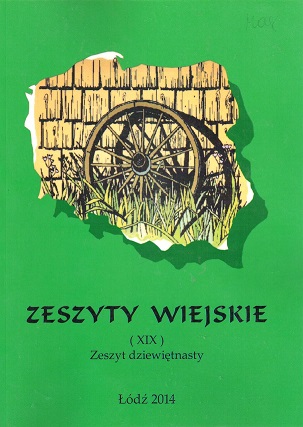Olejarnia Władysława Malesy w Mszadli, pow. Skierniewice, woj. łódzkie jako dokument techniki i życia społecznego mieszkańców wsi
DOI:
https://doi.org/10.18778/1506-6541.19.30Abstract
The present article is devoted to the history of an oil mill situated in Mszadla, poviat Skierniewice, Łódzkie voivodeship. It was constructed and operated by Władysław Malesa (1912-2000), a very active inhabitant of the village of Mszadla. Since 1935, he belonged to the United People’s Party [Zjednoczone Stronnictwo Ludowe], and during World War II, he was a member of Peasants’ Batallions [Bataliony Chłopskie]. Apart from farmer’s work and oil production, he also ran seasonal manufacture of concrete roof tiles.
Władysław Malesa’s oil mill was established in 1948, and it worked until 2000. It was located in one of the buildings of Mr Malesa’s farm, and the following machines were used there: a lever press, a cylindrical grinder (crusher), a fanner, an open furnace with a pot to heat post-extraction seed meal, and a meal box. The oil mill used to work seasonally, during Advent before Christmas and during Lent before Easter. Rapeseed oil was its main product, although some times flax or mustard plant were pressed, too. The so-called oil-cake which remained after pressing was used as animal feed.
In 2010, the Oil Mill was bought by the Museum of Archaeology and Etnography in Łódź. The machines were then renovated, and in 2013 became part of an open-air village museum [Łęczycka Zagroda Chłopska] in Kwiatkówek near Łęczyca. Special oil-pressing presentations are sometimes organised for visitors of the mill.
Downloads
Downloads
Published
How to Cite
Issue
Section
License

This work is licensed under a Creative Commons Attribution-NonCommercial-NoDerivatives 4.0 International License.











